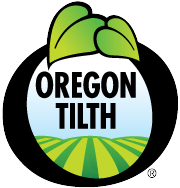OVERVIEW
A sharp rise in drug-resistant bacteria – aka “superbugs” – is not just a byproduct of misuse of antibiotics by humans. In fact, over 80 percent of all antibiotics for sale in the United States are only being used on livestock and poultry. From the American College of Preventive Medicine to the Union of Concerned Scientists, medical advocates are sounding the alarm to give our farmed animals humane care and protect public health.
The Challenge
People don’t want to take medication unless they’re sick. So, why do we pump over 29.9 million pounds worth of antibiotics into meat and poultry operations animals annually?
Over two million people fall ill each year in the United States and 23,000 die as a result of antibiotic-resistance infections. And while the U.S. Food and Drug Administration has taken some steps to reduce usage, an October 2014 report stated that medically important antibiotics for humans increased by 16 percent for use in food-producing animals. Livestock and poultry operators continue to add antibiotics to animal feed and water – most bought without a prescription – to promote faster growth to shorten time to market and reduce costs on feed, care and housing.
Meanwhile, the National Institute of Allergy and Infectious Diseases warns that drug-resistant infections threaten public health and now cost the United States more than $24 billion dollars annually. If the risks to public health are so clear, why is the use of antibiotics in animals continuing to grow?
The Opportunity
Organic certification prohibits the use of antibiotics and hormones in livestock and poultry.
Instead, we believe that the best care for animals and public health is preventative. Organic producers focus on diet, living conditions and reduction of stress through animal husbandry practices. And if antibiotics are ever administered to an animal for humane treatment of disease when all other holistic approaches fail, neither the animal nor any of its products (e.g. milk, eggs) can ever be bought or sold as organic.
Certified organic livestock operators are also required to manage waste to keep soil, water and landscapes free from contamination. We believe that humane treatment for animals is where good ethics and sound practices join together to protect human, animal and environmental health. Our advocacy for increased public investment in research and education dollars for organic approaches is part of an overall commitment to strong public health.
